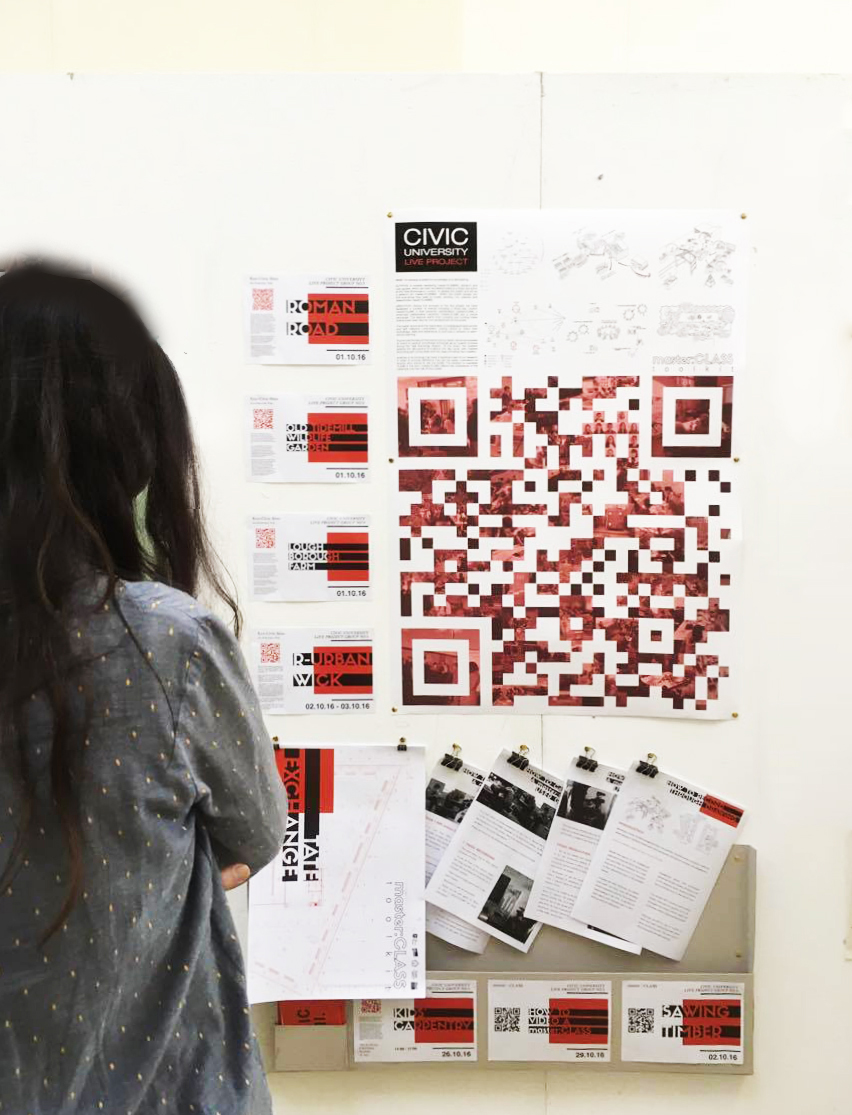
Year | 2016
Location | London
Client | Andreas Lang
As the Civic University Live Project group, we were briefed to create, record and disseminate a prototype participatory eco-civic curriculum based on direct site engagement with four sites in London; Loughborough Farm, R-Urban Wick, Old Tidemill Wildlife Garden, Roman Road. This curriculum is intended to remain open for others to adopt, adapt and contribute to based on their own site conditions. We also had to consider that the curriculum prototype may be further replicated in Paris and Bucharest, in relation to the EcoDA research project.
In order to create a platform for knowledge exchange, we developed a digital toolkit for knowledge and skill sharing. The toolkit involved a website which is a combination of research, user guides, examples of master:CLASS, and a communication platform, and a proposal for Tate Exchange.
During the process of the live project we have facilitated a number of events including a three day London master:CLASS, a kids carpentry participatory master:CLASS, a three day collaborative carpentry master:CLASS and a recipe exchange. Everything we have learned from these events are then fed into the development of the final output which is the toolkit.
The master:CLASSes we have experimented with are examples of such a curriculum and show that they can take place in various forms, e.g. in a classroom, by setting up a particular situation / condition, mobile (like the harvesting of the vegetables used for the cooking class), hands-on (like the work which was done at the Loughborough Farm), etc. These experiences provided a foundation for many of the outputs in the website. To further disseminate these ideas and introduce it publicly, it is proposed that the toolkit is displayed at a 3-day event acting as a platform for master:CLASSES.
The project has seen the group apply a variety of pedagogical approaches as well as lessons learnt to the implementation of a range of master:CLASSES. Reflection has been a key component of the project. Each master:CLASS or event has been analysed to consider the successes and shortcomings in order for future master:CLASSES to be curated, facilitated, recorded and disseminated more successfully.
Overall, the toolkit is reflective of this exploration of pedagogical approaches and self reflection, inviting others to share their knowledge, skills and experience to promote a knowledge and skills network and open-source learning.
Click here for our master:CLASS toolkit website
Click here for our research blog
The video below showcases one of the eco-civic sites that we visited. It is also an example showing how you can capture a master:CLASS and disseminate knowledge online.

